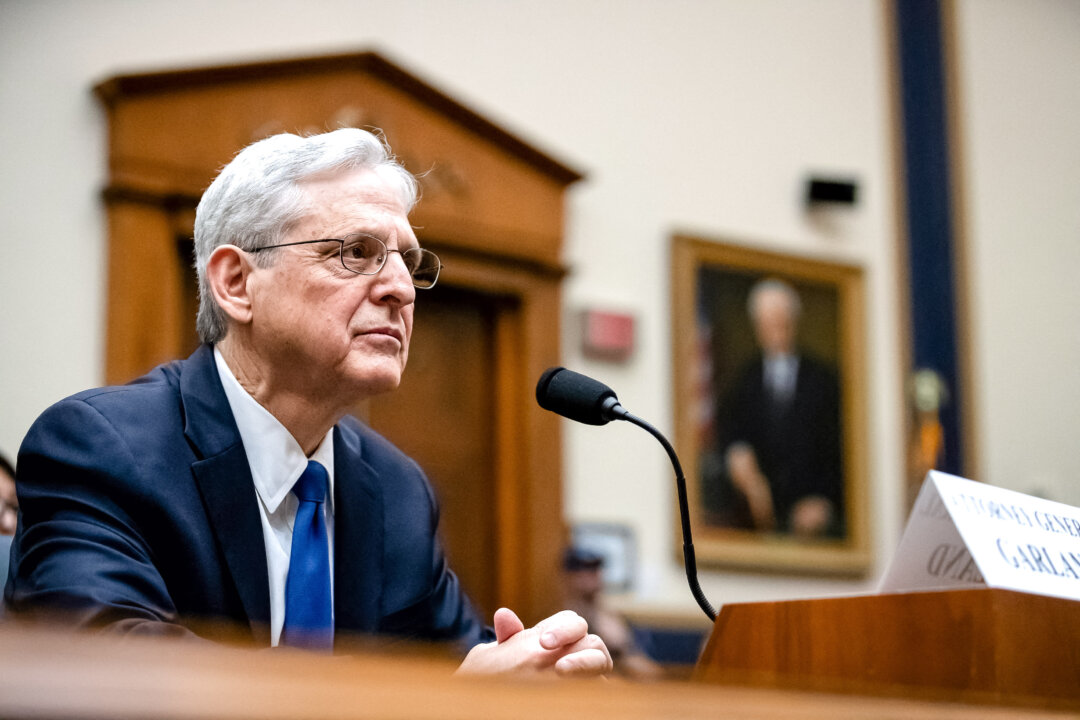We support our Publishers and Content Creators. You can view this story on their website by CLICKING HERE.

House Republicans sought audio tapes of the president’s interviews with special counsel Hur. Biden has invoked executive privilege over the tapes.
WASHINGTON—The House on June 12 voted to hold Attorney General Merrick Garland in contempt of Congress for failing to comply with a subpoena to produce audio tapes of President Joe Biden’s interviews with special counsel Robert Hur.
In a mostly party-line 216–207 vote, the House passed a measure to recommend criminal charges for Mr. Garland. One Republican, Ohio Rep. David Joyce, joined all Democrats to vote against the resolution.
A referral will now be made to the Justice Department, which is unlikely to prosecute the matter, so it may end up in the courts.
Speaking at the Republicans’ weekly press conference ahead of the vote, House Speaker Mike Johnson (R-La.) argued that Mr. Garland “doesn’t get to decide whether he’s going to comply with a subpoena or not.”
Mr. Hur’s report, in reaching its conclusion not to recommend charges against the president, cited that President Biden would present to a jury as a “well-meaning, elderly man with a poor memory.”
This finding sparked intense scrutiny over the president’s mental acuity—assertions forcefully rejected by President Biden and the White House.
While the Justice Department (DOJ) has turned over transcripts and notes from the interview, House Republicans have maintained that they need the tapes to verify the transcript’s accuracy and to confirm that Mr. Hur’s observation was justified.
The Department of Justice and Democrats pushed back, contending that Republicans wanted the tapes solely for partisan reasons.
“The absence of a legitimate need for the audio recordings lays bare your likely goal—to chop them up, distort them, and use them for partisan political purposes,” Ed Siskel, President Biden’s counsel, wrote to House Oversight Chair James Comer (R-Ky.) and House Judiciary Chair Jim Jordan (R-Ohio) in a May 16 letter.
The DOJ has argued that providing the tapes would deter future presidents from cooperating with similar investigations down the road.
“I will not jeopardize the ability of our prosecutors and agents to do their jobs effectively in future investigations,” Mr. Garland said at a House Judiciary Committee hearing last week.
The Justice Department also raised concerns that artificial intelligence could be used to create “deep fakes” of the audio to distort what President Biden actually said.
In an 18-page June 10 memo to Democrats, Rep. Jamie Raskin (D-Md.), ranking member of the House Oversight Committee, came to Mr. Garland’s defense.
“The audio recording of that interview will not in any way change the president’s words, nor will it miraculously reveal the evidence of impeachable conduct that committee Republicans have vainly sought in the 3.8 million pages of documents and 80 hours of testimony collected as part of their 17-month impeachment inquiry,” he wrote in the memo, which was obtained by The Epoch Times.
“We will not be intimidated by these attacks. But it is absurd and dangerous that public servants, many of whom risk their lives every day, are being threatened for simply doing their jobs and adhering to the principles that have long guided the Justice Department’s work,” Mr. Garland wrote.

 Conservative
Conservative  Search
Search Trending
Trending Current News
Current News 







